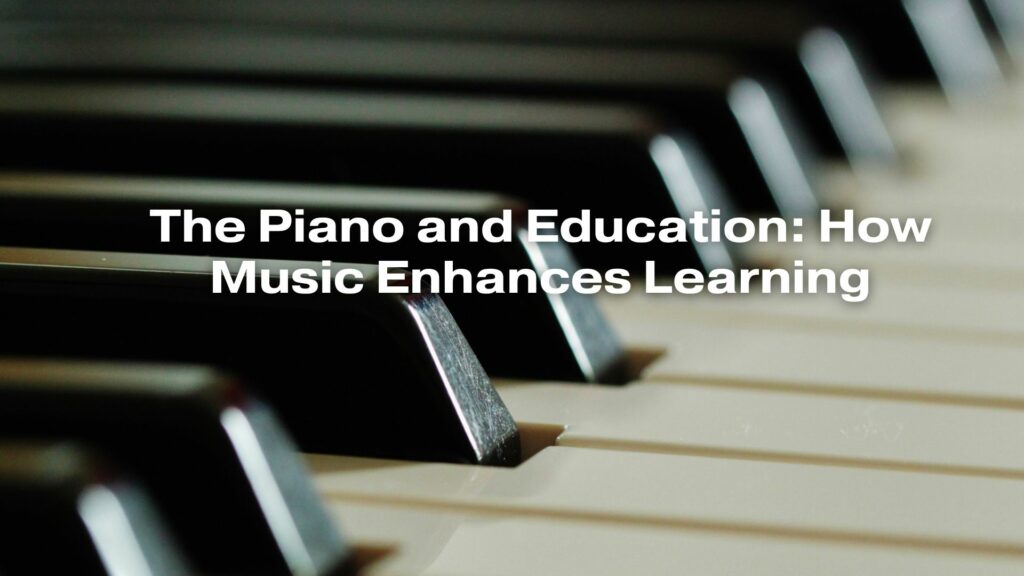The piano is not just an instrument for musical performance; it is also a powerful tool for enhancing education across various domains. From cognitive development to emotional intelligence, the piano plays a crucial role in the learning process. In this article, we’ll explore how music, and the piano in particular, enhances learning and education.
1. Cognitive Benefits:
- Improved Memory: Learning to play the piano involves memorizing music, which enhances memory skills. This can be particularly beneficial for students in academic subjects that require memorization.
- Enhanced Problem-Solving: Music theory and piano practice involve intricate problem-solving, boosting analytical and critical thinking abilities.
- Mathematical Aptitude: The rhythmic and mathematical aspects of music contribute to better mathematical skills among students.
2. Language Development:
- Learning to read sheet music and understand musical terminology can improve language skills, vocabulary, and comprehension.
3. Emotional Intelligence:
- Playing the piano encourages emotional expression and interpretation. It helps students understand and express emotions through music, promoting emotional intelligence.
4. Discipline and Focus:
- Piano practice instills discipline and the ability to concentrate on a task. This discipline can be transferred to academic pursuits.
5. Fine Motor Skills:
- Piano playing requires precise hand-eye coordination and fine motor skills, which can be beneficial in various practical and academic activities.
6. Creativity:
- The piano nurtures creativity, allowing students to compose their music and improvise. This creative outlet can inspire innovative thinking in other areas.
7. Stress Reduction:
- Playing the piano can reduce stress and anxiety, making it easier for students to focus on their studies and manage academic pressures.
8. Academic Performance:
- Numerous studies have shown a positive correlation between music education, including piano instruction, and improved academic performance, particularly in subjects like math and science.
9. Social Development:
- Participation in piano lessons and group performances fosters social skills, teamwork, and collaboration.
In conclusion, the piano’s role in education is far-reaching and diverse. It enhances cognitive development, emotional intelligence, and a wide range of academic and practical skills. Music education through the piano provides students with a holistic learning experience that goes beyond musical proficiency, fostering personal and intellectual growth. The piano is a valuable educational tool that contributes to well-rounded and intellectually capable individuals.


